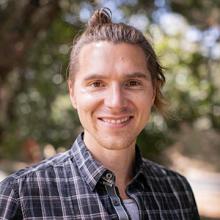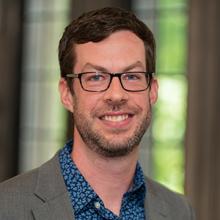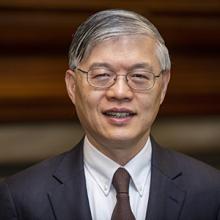Announcing the 2024-25 CISSR Faculty Fellows
UChicago’s Center for International Social Science Research, under the Division of the Social Sciences, has announced the 2024-2025 cohort of Faculty Fellows. Since 2017 CISSR’s Faculty Fellows Program has supported international, transnational, and global research projects that are empirical in nature.
The program is designed to support social scientists from any discipline, working in any geographic region, regardless of methodological approach. The center provides up to $25,000 for faculty research projects at any stage of development.
This year’s fellows will address topics that include spatial heterogeneity in social science research and the legacy of slavery in eastern Nigeria. They will build on research covering the COVID-19 pandemic in China and relationships in pre-Roman Iberia. And they will explore the precise definition of "neighborhood" as well as the reception of asylum-seekers in Chicago. The topics are broad and impactful, with implications that stretch from academia to policy.
"Over the course of eight years, the faculty fellows program, which provides faculty with research funds targeted to specific projects and asks these faculty to discuss their research in collaborative settings with CISSR affiliates, has become our signature program. Our scientific community is defined by a collective desire to learn from the work our colleagues will be advancing in the coming year. Although varied in topic and scope, each of these projects shares a couple of characteristics. First, these faculty are tackling thorny questions that truly do not yet have answers. Second, their relevance transcends any single discipline or setting. This commitment to rigor and discovery defines the CISSR community." Jenny Trinitapoli, Professor in the Department of Sociology and Faculty Director, CISSR
Mike Albertus, Professor of Political Science
Project: Terra Firma: Land and the Future of Human Civilization
Albertus’s book would follow his 2021 text, Property Without Rights: Origins and Consequences of the Property Rights Gap, in which he examined why governments that implement land reform programs only rarely grant property rights to land beneficiaries and how that impacts development and inclusion. His next book will take a global perspective on how land and the power it confers encouraged, created, and allowed many of societies’ most persistent problems — racial hierarchy, gender inequality, environmental degradation, and poverty and inequality — to take root. It will look to explain why countries’ land reallocation policies of the past two centuries patterned and determined these societal problems, and how this history can help direct us toward new and workable policy solutions.
To understand these patterns, Albertus will highlight four key ways that governments have parceled out land: settler, tiller, collective, and cooperative reforms. These paths of land redistribution tend to lock in governments and civilizations on trajectories that are self-reinforcing and difficult to deviate from. The new book will illuminate these patterns and their consequences based on original archival work and fieldwork. In the process, the book will contribute to ongoing global debates about some of the world’s most pressing social issues.
Luc Anselin, Stein-Freiler Distinguished Service Professor of Sociology and in the College
Project: Addressing Spatial Heterogeneity in Social Science Research
Anselin’s project addresses the elusive, precise definition of "neighborhood," encompassing both spatial extent and social composition. Thus, his research would have three goals: further develop new estimators for endogenous spatial regimes to allow for addressing spatial heterogeneity; implement these estimators as free and open software; and apply these methods and tools to a research project about housing markets in Brazil.
The work would further develop a research collaboration between UChicago’s Center for Spatial Data Science and the Universidade Federal de Minas Gerais in Brazil, which builds on earlier collaborations between Anselin and Associate Professor Amaral at UFMG. In 2020 and 2023, Dr. Amaral and CSDS successfully developed a joint research project, partially funded by the Provost’s Global Faculty Awards.
Austin Carson, Associate Professor of Political Science
Project: Intelligence Infrastructure in International Politics
Austin’s book looks to introduce the concept of "intelligence infrastructure" to refer to the physical sites and installations needed to operate nearly all modern surveillance systems. Intelligence infrastructure includes listening posts for intercepting communications, airfields used for drone surveillance flights, space control systems to operate spy satellites, and radar networks for detecting missile attacks. To be effective, these sites must be constructed on foreign territory.
The book will use a qualitative-historical approach that draws on declassified archival material. It will argue that the "built environment" of U.S. foreign intelligence collection — global in scope since World War II — has deeply influenced American foreign relations and policy. At the core of the book will be a historical narrative of American Cold War-era intelligence infrastructure located in overseas territory, with the narrative illuminating some recurrent themes. More broadly, this project will theorize the material-logistical mechanics of surveillance and its relevance to power, geography, and threat.
Marisa Casillas, Assistant Professor of Comparative Human Development
Project: Pilot-testing a cross-cultural field-friendly infant-directed speech preference paradigm
Casillas’s research looks to critically re-examine one of the most well-known findings in developmental language science: that in the first year of life, infants develop a preference for infant-directed speech (IDS) over adult-directed speech (ADS). This preference has been proposed to play an essential role in child language development. But observations of cross-cultural diversity has complicated these claims: Children around the world hear different amounts of IDS, and they hear it from different talker types: some more often from adults and some more often from children.
The study would examine these ideas and more in four communities with distinct profiles of IDS amount (high vs. low) and source (adult vs. child). Casillas’s team makes two predictions: First, that a preference for IDS is present across all communities; but, second, infants prefer child-produced over adult-produced speech in communities where other children are their predominant interlocutors. The project seeks to pilot-test a new method for examining this question, in situ, in the U.S., Bolivia, Mexico, and Papua New Guinea.
Yuting Dong, Assistant Professor of History
Project: Mapping Neighborhoods in Japan’s Empire: A Digital Humanities Project on Infrastructure’s Socio-Political Influences
Using methods of digital humanities, namely ArcGIS/QGIS, the project looks to explore how imperial infrastructure reconfigured ethnic relations during Japan’s colonial rule in Manchukuo from 1932 to 1945. During this period, the government erected large-scale physical infrastructure, which led to the breakdown of former communities and generated unprecedented tensions among the diverse ethnic groups in Manchuria.
Mapping Neighborhoods extrapolates data from two sets of documents: telephone directories and merchants-industrialists’ directories that Japanese institutions in various cities in Manchuria published regularly. It is the first project that will revive the spatial dwellings of different ethnic groups on historical maps down to the street level. The result contributes to the current studies of Japan’s empire by going beyond official archives and written records, resulting in a more diverse and accurate view of how inter-ethnic relations played out in space and time. It also converses with studies of infrastructure to show how the dual force of imperialism and capitalism manufactured differences within Japan’s empire in Manchukuo and how empires reproduced social and political hierarchy through manipulating spatial relations.
Chiara Galli, Assistant Professor of Comparative Human Development
Project: A Welcoming City? The Reception of Asylum-Seekers in Chicago
Galli’s study is an urban ethnography of the city of Chicago that examines the experiences of asylum-seekers, as well as how the state, civil society, and residents have responded to new arrivals. More than 20,000 mostly Venezuelan asylum-seekers have arrived in Chicago since August 2021, and Chicago bolstered its immigrant integration policies by vastly expanding asylum-seekers’ access to the welfare state, including by developing a brand-new shelter system to house new arrivals, which is separate from the network of existing homeless shelters and cannot be accessed by unhoused Chicagoans.
The project seeks to answer the following research questions: How do Chicagoans perceive and respond to the arrival of asylum seekers and city-funded facilities to house them in their neighborhoods? What role do existing axes of inequality — race, class, and gender — play in shaping grassroots responses to new arrivals, ranging from conflict to solidarity? And how are Venezuelan asylum seekers adapting to life in Chicago? The research will include observing town hall meetings, neighborhood events, volunteer initiatives, police stations, and migrant spaces, as well as interviews with local residents of neighborhoods where migrant shelters have been opened, volunteers, and migrants themselves.
Alice Goff, Assistant Professor of History
Project: The Afterlives of Church Bells in Postwar Germany
Goff’s research project focuses on the consequences of the requisitioning of church bells in postwar Germany, a subject that has received limited attention from historians. By some estimates, 80 percent of the bells within the borders of the Third Reich were lost during the war. This entailed a massive rupture in how Christian churches called congregants to worship, notified communities of celebrations and tragedies, and sounded alarms.
This study will consider how this affected Germans' understanding of the place of the church and spiritual life in postwar society, and the place of bells in constructing a postwar memory culture both of the immediate Nazi past, and of a deeper history of German craftsmanship and everyday life. The project will track the life of these metaphors through monuments, literature, and music. It will also use the visual resources created through requisitioning to pursue whether and how the story of the destruction of European bells might have been understood in relation to the destruction of European Jews.
Carolina Lopez-Ruiz, Professor of Ancient Mediterranean Religions and Mythologies in the Divinity School and the Department of Classics
Michael Dietler, Professor of Anthropology and of Social Sciences in the College
Project: Negotiating Identities, Constructing Territories: Pre-Roman Iberia (900-200 BCE)
The ongoing study of ancient Iberia and how diverse groups there first knitted an interconnected space is key to understanding the later Mediterranean of Classical and Roman periods in its true cultural depth. This project builds on a 2003 conference organized by Dietler and López-Ruiz at UChicago, which resulted in the edited volume Colonial Encounters in Ancient Iberia: Greek, Phoenician, and Indigenous Relations (2009). Two decades of research followed that explored the coasts and valleys of Iberia starting in the ninth century BCE and how they were tapped by Phoenician and Greek merchants and settlers coming from the eastern Mediterranean.
The new project shifts the focus from colonial dynamics to the negotiation and construction of identities and territories, as well as new understanding of past environmental challenges, bringing novel data and perspectives to an international audience.
James Robinson, The Reverend Dr. Richard L. Pearson Professor of Global Conflict Studies, Harris School of Public Policy
Project: Understanding the legacy of slavery in eastern Nigeria: The case of the ohu system
In perhaps the first quantitative investigation of the legacy of slavery in Africa on contemporary social, economic and political outcomes, Robinson’s project focuses on Nkanuland in eastern Nigeria and the descendants of people known as ohus: a social status close to slaves as understood in the contemporary social science literature.
The study is based on evidence from the Americas that suggests the legacies there are negative, and literature in African studies emphasizes qualitative differences between domestic slavery in Africa and elsewhere. The consequences, then, may be different, specifically less pernicious. The descendants of ohus are readily identified and in the study-area live in separate villages making them easy to distinguish. The project will survey individuals in these two sets of villages to examine the effects of being the descendant of slaves. Our focus is on the impact of this status on individual incomes, asset ownership, education, occupation and social mobility, but will also examine the consequences for political participation and office holding. It will explore the impacts on social capital and how the legacy of ohu descent influences marriage patterns and social networks.
Dali Yang, William Claude Reavis Professor of Political Science
Project: Fortress China: The Pursuit and Unraveling of the Zero-COVID Regime
The project extends Yang’s research for his previous book, Wuhan: How the COVID-19 Outbreak in China Spiraled Out of Control. The new work will dissect China's zero-COVID policy regime and examines the interplay between China's stringent public health measures and its political governance, exploring how the strategy was sustained under Xi Jinping's leadership despite mounting challenges and its eventual collapse under economic strains and public discontent.
The methodology used for the book includes archival and field research, comparative analysis, and quantitative methods, offering insights into China's response mechanisms and state-society dynamics during the pandemic. The study aims to contribute significantly to the understanding of China's governance and public health strategy during the pandemic. By providing an in-depth analysis of the zero-COVID regime's implementation, escalation, and unraveling, this project seeks to inform future public health policies and crisis management strategies globally. The book will be valuable for health professionals, policymakers, and scholars in political science, public health, and China studies.
 THE UNIVERSITY OF CHICAGO
THE UNIVERSITY OF CHICAGO











